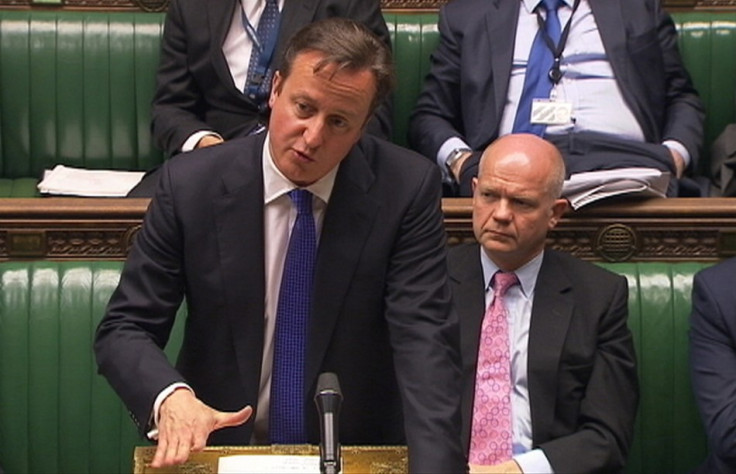Syria: Britain Backs US Chemical Weapons Claims But No Decision on Arming Rebels
British PM David Cameron shares Obama's view on chemical weapons used by Assad's regime

Prime Minister David Cameron has backed White House claims that Syrian president Bashar al-Assad used chemical weapons against rebels but Whitehall has not made a decision on whether to follow the US example and arm opponents of the regime.
In an interview with the Guardian before the G8 summit in Northern Ireland, Cameron said that Britain shared Washington's view about "growing levels of information about chemical weapons used by the regime" and said there was no evidence that those weapons had been used by rebels.
The Foreign Secretary, William Hague, pointed out that lethal gas including sarin had been used. He condemned the regime's failure to cooperate with a UN fact-finding mission as deplorable.
The Syria crisis, Hague said, "demands a strong, determined and coordinated response from the international community". The UK and France forced the European Union in May to not renew an embargo on supplying weapons to the Syrian opposition.
Senior US aide Ben Rhodes confirmed that the White House had agreed for the first time to direct military support to opposition groups.
Peace conference
"Our intelligence community now has a high-confidence assessment that chemical weapons have been used on a small scale by the Assad regime in Syria. The president has said that the use of chemical weapons would change his calculus, and it has," he said.
A spokesman for Cameron said that the British government had not reached a decision on arming the rebels. "Nothing is off the table," the spokesman said. Cameron would discuss the issue with Obama, the spokesman said.
Opposition leader Ed Milliband said: "[The coalition] has put its energy into the lifting of the arms embargo - not into the peace conference."
In response to the US mulling setting up a limited no-fly zone over the Syrian border with Jordan to monitor arms delivery to rebels, French foreign ministry spokesman Philippi Lalliot said it was unlikely to happen in the face of Russian and Chinese opposition on the UN Security Council.
Russia, an ally of Assad, said in May it would send S-300 surface-to-air missiles to Syria in response to the EU ending the arms sales' embargo. Moscow added that the information provided by the US to Russia on the chemical weapons "does not look convincing".
Syria accused the US of fabricating information about the gas to justify arming the rebels and said Obama had double standards in his dealings with "terrorism".
© Copyright IBTimes 2025. All rights reserved.






















